The Romans came to Britain 2000 years ago. They changed the country. The Roman Empire made its mark on Britain, and even today, the ruins of Roman buildings, forts, roads, and baths can be found all over Britain.
Where did Romans come from?
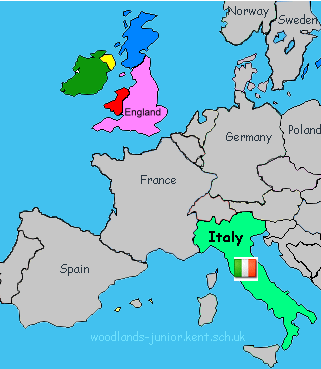
Get some information about Romans
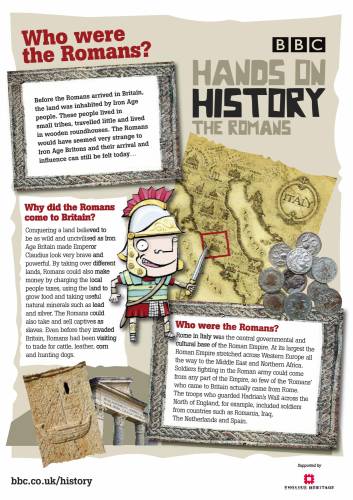
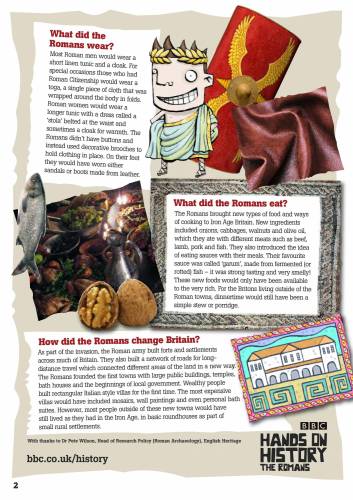
Roman invasion: The story so far (look at the timeline)
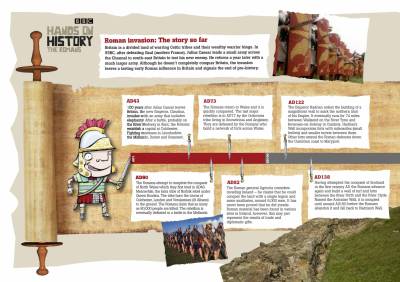
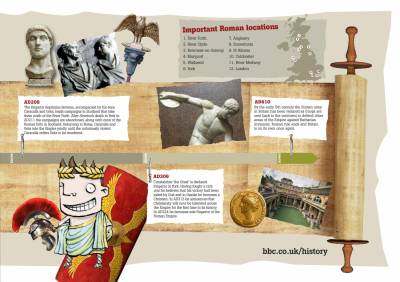
Read more information
Roman defence of Britain (Это интерактивная страница истории. В левой колонке "Choose a section" выбираете главу для чтения. Читать нужно все! В правой колонке можно посмотреть фотографии. И узнать забавные факты из истории ("Fun facts"). После этого проходите на Римскую улицу. Ваша задача убрать те атрибуты, которые не имеют отношения к Римлянам, в тоннель времени)
Возвращаемся на страницу Roman defence of Britain и в левом нижнем углу находим Quiz: Defence of Britain. Ответьте на вопросы.
The Norman Conquest
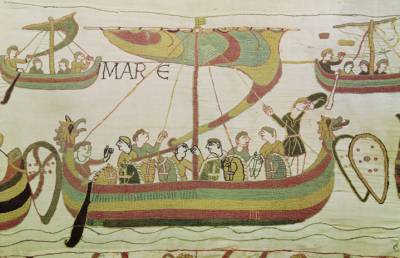 Norman soldiers cross the sea to invade England in 1066. Normandy was settled by Vikings in AD 911, so Norman ships looked like Viking ships. The picture is from the Bayeux Tapestry. Norman soldiers cross the sea to invade England in 1066. Normandy was settled by Vikings in AD 911, so Norman ships looked like Viking ships. The picture is from the Bayeux Tapestry.
In 1066 England was conquered by William, Duke of Normandy. The Normans were the descendants of Vikings who had settled in France. They took over all of England, including the Danelaw. In 1069 the Normans burned Jorvik. This was the end of the Viking Age in England.
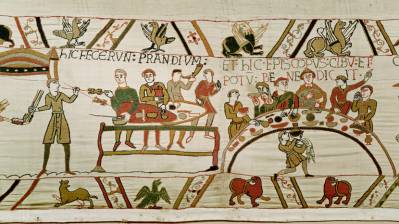 This picture, from the Bayeux Tapestry, shows William the Conqueror feasting with his Normans. The Norman Conquest ended both Anglo-Saxon and Viking rule in England. This picture, from the Bayeux Tapestry, shows William the Conqueror feasting with his Normans. The Norman Conquest ended both Anglo-Saxon and Viking rule in England.
In Scotland, Viking earls went on ruling some islands for hundreds of years. They were driven from the mainland of Scotland by 1100, but remained 'lords of the isles' (the Western Isles) until the 1200s. The islands of Orkney and Shetland were more Norwegian than Scottish. They did not officially become part of Scotland until 1469.
-
What the Vikings left behind
Archaeologists find the remains of Viking houses, burial sites, treasure hoards, carvings on stones, and writing carved in runes.
-
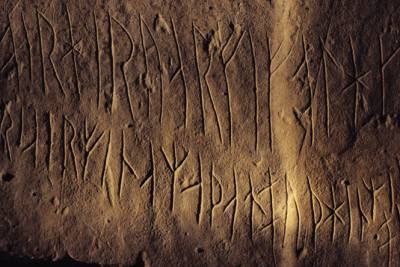 These are Viking runes. They were carved on a stone at Maes Howe, a prehistoric tomb site in the Orkney Islands. These are Viking runes. They were carved on a stone at Maes Howe, a prehistoric tomb site in the Orkney Islands.
-
Vikings left their mark on Britain in other ways too, such as language, Lots of familiar English words originally came from the Vikings' Norse language. Examples are 'husband', 'egg', 'law' and 'knife'. Place names show where Vikings once lived. A place with a name ending in -by, -thorpe or -ay was almost certainly settled by Vikings. The Vikings also left behind many stories about real people, called 'sagas'. Scotland has its own saga from the Viking Age, called 'Orkneyinga Saga' or 'The History of the Earls of Orkney'.
Источник: http://www.bbc.co.uk/history/forkids/ | 
